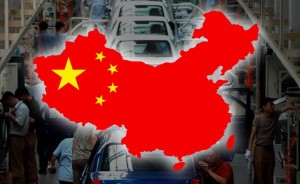China’s Dongying Qirun Chemical Co., Ltd. will license Honeywell UOP’s proprietary Unicracking technology for the production of diesel and naphtha at its refinery in China’s Shandong Province to meet growing domestic demand for transportation fuels. Honeywell UOP also will provide engineering, start-up services, equipment and catalysts.
“The growth in demand for transportation fuel in China now outpaces the U.S. and EU combined,” said Mike Millard, vice president and general manager of Honeywell UOP’s Process Technology & Equipment business. “The Unicracking technology provides the flexibility to upgrade a variety of feedstocks to high-quality naphtha, kerosene and diesel, and will enable Qirun to produce a broad slate of products at a reduced cost and with lower consumption of hydrogen and natural gas.”
The technology has advanced due to the development of more effective catalysts, unit design and reactor internals. It is available in multiple flow schemes, including single- and two-stage processes, and is designed to produce higher yields of transportation fuels that adhere to tighter regulations using a wider range of feedstocks. Honeywell UOP has licensed more than 200 Unicracking units in more than 40 countries, of which more than 60 have a two-stage configuration. Since 2009, at least 15 Unicracking two-stage hydrocracking units have been licensed for full conversion of feedstocks such as resid, and significantly higher middle distillate yields.
*The stand-alone Unicracking unit will process straight run vacuum gas oil, coker gas oil and light cycle oil. The unit’s fractionation section includes heavy polynuclear aromatics (HPNA) management, allowing the unit to achieve near 100% conversion throughout the entire cycle length. In a recently licensed two-stage Unicracking configuration at the Tupras Ismit refinery near Istanbutl, the first stage incorporates a hydrotreating reactor followed by a hydrocracking reactor, while the second stage incorporates a highly selective catalyst designed for a unique second stage environment for even higher distillate yields.
In addition, UOP reports that optimized fractionation design reduces capital and operating design, including as much as a 75% decrease in utilities costs, and as much as 79% heater fuel reduction.
-
For clarity, UOP licenses several different Unicracking configurations — once through; single-stage and two-stage. Separate hydrotreating and hydrocracking is a specific two-stage Unicracking configuration.








Leave a Reply
You must be logged in to post a comment.